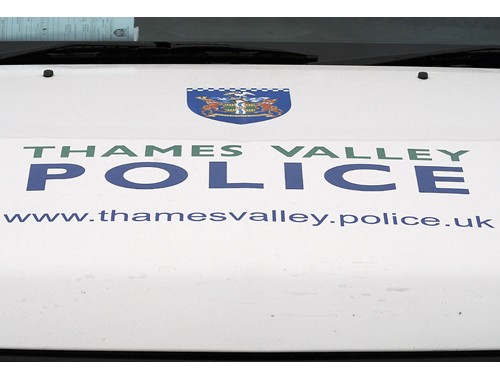Is your police force applying conditions to your firearms certificate?

Is your police constabulary applying conditions to your firearms certificate that do not appear in Home Office guidance, nor recommended by the Association of Chief Police Officers?
It’s a question I asked in late 2011 when I sent a freedom of information (FOI) request to all UK police forces.
Thames Valley Police, my own force, replied to say it “did not hold this information.”
NOT THE CASE…
Soon after, to my surprise, a Sporting Gun reader wrote seeking my advice because Thames Valley were applying a mentoring condition to his new certificate.

Mentoring is a requirement to be accompanied by another FAC holder and is NOT in Home Office or ACPO guidance – so I wrote to Assistant Chief Constable Helen Ball and challenged her on the discrepancy.
In her reply the ACC waffled on in a pious manner about the responsibilities of the police and apologised for the misleading FOI response.
There was, she said, no blanket policy in respect of mentoring and fewer than 1% of the 6,346 certificate holders had the condition applied.
Later she told me the figure was consistent but when I asked for the actual numbers she didn’t have them!
So, how did she know? However she did say she was reviewing the system.
INHERENT PROBLEMS
Mentoring sounds fine in theory but has many practical shortcomings which is why the main shooting organisations don’t support it.
That’s because:
» It’s unenforceable. There’s nothing to stop the certificate holder going out on his own so long as he occasionally goes out with the mentor.
» There’s no evidence to suggest mentoring improves public safety. For example, trained police marksmen fire more shots in error, occasionally killing or injuring a colleague, than they do in real life.
» The decision on whether someone is a threat to public safety is effectively transferred from the police to the mentor. The ACC has no option but to accept a mentor’s recommendation once he has been appointed.
» The mentor is chosen by the applicant who is arguably the least well-fitted person to make such a selection.
» The mentor is put to considerable inconvenience and might face a claim for damages if an accident occurred and the victim thought it was due to poor mentoring.
» Thames Valley offers no meaningful written guidance to the mentor or applicant on what mentoring involves or what standard is to be achieved before the condition is removed.
» The imposition and removal of the condition incurs considerable staff time and effort for which no charge is made.
Listening to the chatter this season in the beaters’ room proved very illuminating because it revealed that the mentoring condition was actually being applied quite widely.
A further FOI request revealed the information ACC Ball was giving me fell short of the mark.
The figures had been available all along as the table (provided by Thames Valley Police) shows.
The number with mentoring conditions applied had exceeded 1% a full year before ACC Ball gave me that figure and for the current year is heading towards 2.4%.

No information was provided about the number of conditions which had been removed, so in a worst case scenario 454 holders (7% of all Firearms Certificate holders) could be subject to mentoring, and the figure is rising inexorably.
POLICE FARCE!
I felt badly let down by the unreliable and inaccurate information but worse was to come.
I wasn’t sent a copy of the review, mainly because there was nothing on paper, according to Detective Chief Superintendent O’Dowda, to whom responsibility for replying to me was delegated.
The review seems to have been an internal one with no input from the principal shooting organisations.
Unsurprisingly it reinforced the status quo.
After all you wouldn’t want to admit to having made a silly decision in the first place would you?
The claim that there is no blanket policy also turns out to be untrue.
DCS O’Dowda repeated the ACC’s waffle and told me that mentoring would be applied to an FAC air rifle holder moving to a .22, a .22 holder moving to centre fire and a target shooter moving to live quarry shooting.
Added to that are the complete newbies.
What he described as ‘a very small percentage’ turned out to be 41% – quite large in most people’s eyes.
Thames Valley is not the only force to apply a mentoring condition but in the main the police recognise that mentoring is not a worthwhile policy.
Shooting accidents are mercifully rare and the shooting community has proved pretty effective at applying good standards without police involvement.
MISGUIDED POLICY
The Home Office and ACPO stress the importance of police forces administering the law in a consistent manner and the importance of adhering to national guidelines.
Chief Officers are supposed to be able to justify any departure from this policy.
Case law requires them to view the application from the standpoint of the applicant rather than as a possible objector.
Clearly Chief Constable Sara Thornton of Thames Valley thinks she knows better than her colleagues.
Maybe it’s time she woke up and realised the policies she is pursuing are a waste of time and effort.
Does your police force also apply a mentoring condition, or insist on other conditions not stipulated by the Home Office?
If so, please email David c/o our address: [email protected]
Is your police force applying conditions to your firearms certificate








